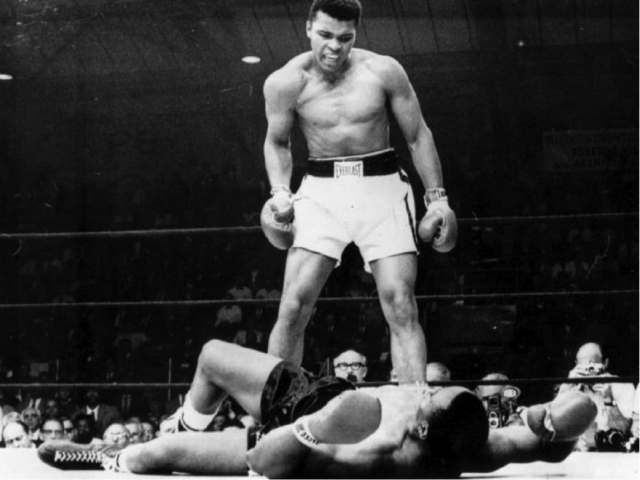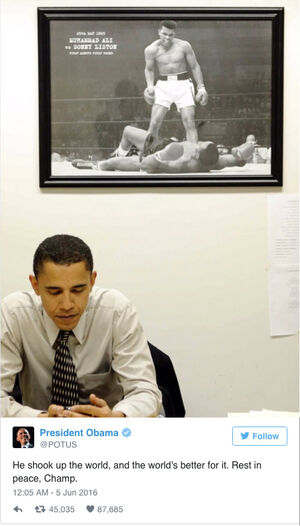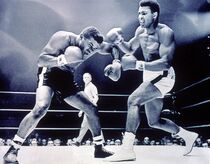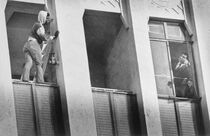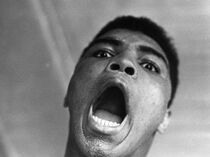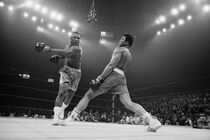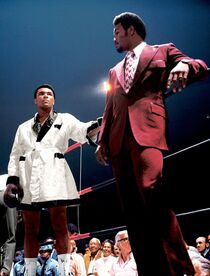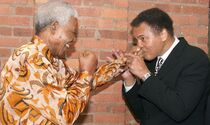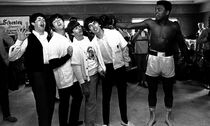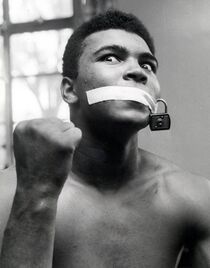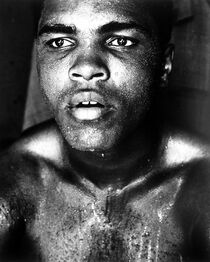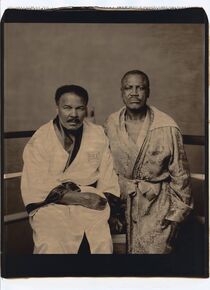TRIBUTE: The Greatest will be mourned by billions world-over
Published Sunday 5 June 2016
He told the boxing world that “I am the greatest” and it did not take much convincing for everyone to acknowledge his rhetoric. And he will always be remembered as The Greatest.
Today, billions around the world are mourning the death of Muhammad Ali, 74, who died in a Phoenix hospital after a respiratory problem worsened.
The man who changed his name from Cassius Marcellus Clay in 1964 after converting to Islam, the first-ever three-time boxing world champion, who fought a 32-year battle with Parkinson’s disease, will be long-remembered for his athletic prowess, good looks, magnificent physique and speed in the ring. He was everything you would want in a boxer.
He, too, will be long-remembered for his classic one-liners. His ability to dominate an interview by grabbing the microphone and saying what needed to be heard.
When he talked about being the greatest, he said it this way: “I am the greatest. I said that even before I knew I was. I figured that if I said it enough, I would convince the world that I really was the greatest.” He added: “It’s hard to be humble when you’re as great as I am.”
When reporters questioned his ability, he put it this way: “I’m young; I’m handsome; I’m fast. I can’t possibly be beat.”
When discussing his speed in the ring, he said: “Float like a butterfly, Sting like a bee, your hands can’t hit, what the eyes can’t see.”
He also once said, “I’m so fast I’m in bed before the lights are out.”
Ali won gold at the Rome Olympics in 1960 as a light-heavyweight before launching his professional career the same year. He first won the heavyweight world title against Sonny Liston on February 25, 1964.
He was effectively stripped of the title for refusing to fight with the US armed forces in Vietnam, for standing by his principles: “No Vietcong ever called me nigger”. The stance, along with his strong Islamic beliefs and outspoken thoughts on black rights, made him an incredibly polarising figure in America but later cemented his legend.
Stripped of his boxing license, he did not fight from March 1967 to October 1970 (ages 25 to almost 29). After returning in 1971, he lost a title shot to Joe Frazier in “The Fight of the Century” at Madison Square Garden, a result he avenged in 1974 - though Frazier had already lost the title to George Foreman.
Ali’s win gave him a shot at Foreman in one of boxing’s most legendary fights: The Rumble in the Jungle in Zaire, in October 1974. Ali won by eight-round knockout, having exhausted his bigger, stronger and younger rival by tricking him into punching himself out via the “rope-a-dope”.
Ali won a trilogy fight against Joe Frazier, the famous “Thrilla in Manila” in October 1975. He also had a trilogy match against Ken Norton, who once broke his jaw, the following year and took a heavily-contested decision.
Ali lost his title to Leon Spinks early in 1978 but reclaimed it the same year via an uninspiring unanimous decision, making him an unprecedented three-time world heavyweight champ.
He retired from boxing in 1981 with a 56-5 record. Ali’s diagnosis of Parkinson’s came about three years after he retired.
Besides his success in the ring, he was as famous for his humanitarian stands, he was regarded as the “People’s Champion” and despite his on-going battle with Parkinson’s, he travelled the world as an ambassador for many causes.
Ali’s funeral will be held on Friday in his hometown of Louisville, Kentucky, the family said, and be preceded by a public procession. Former president Bill Clinton, Billy Crystal and Bryant Gumbel will deliver eulogies.


